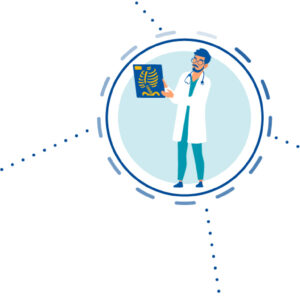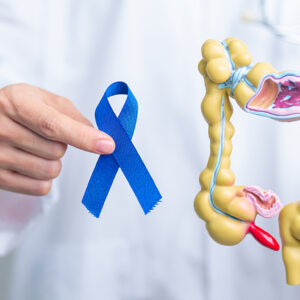Scientific Background
Arrhythmias are a broad range of disorders of the heart rhythm. Arrhythmia can affect all age groups. It occurs when the electrical signals that control the heart’s rhythm are abnormal and result in either too fast, too slow, or irregular pattern of heart beating. They affect approximately 1.5-5% of the worldwide population. If arrhythmia goes unnoticed or untreated, it can evolve from minor inconvenience or discomfort to the patient to a potentially life-threatening condition and cardiac arrest. Causes of arrhythmia vary; including stress and high blood pressure to cardiac disorders and hereditary mutations. Arrhythmias passed down from generation to generation are known as inherited arrhythmia disorders and are the result of genetic mutations in genes responsible for cardiac and electrical function.
Who is this test for?
- In the recent guidelines for management of patients with ventricular arrhythmias and the prevention of sudden cardiac death, published by the American Heart Association, American College of Cardiology and Heart Rhythm Society, genetic testing for arrhythmia related syndromes can provide an opportunity to confirm a suspected clinical diagnosis, provide prognostic information and offer cascade screening for potentially affected relatives of a close family member with an already known genetic mutation leading to arrhythmia. Overall, genetic testing for arrhythmia related syndromes can improve therapeutic implications for people with arrhythmogenic phenotypes such as long QT syndrome.
References
- Desai DS, Hajouli S. Arrhythmias. [Updated 2022 Jun 11]. In: StatPearls [Internet]. Treasure Island (FL): StatPearls Publishing; 2022 Jan-. Available from: https://www.ncbi.nlm.nih.gov/books/NBK558923/
- Schwartz PJ, Ackerman MJ, Antzelevitch C, Bezzina CR, Borggrefe M, Cuneo BF, Wilde AAM. Inherited cardiac arrhythmias. Nat Rev Dis Primers. 2020 Jul 16;6(1):58. doi: 10.1038/s41572-020-0188-7. PMID: 32678103; PMCID: PMC7935690.
- Al-Khatib, S. M., Stevenson, W. G., Ackerman, M. J., Bryant, W. J., Callans, D. J., Curtis, A. B., Deal, B. J., Dickfeld, T., Field, M. E., Fonarow, G. C., Gillis, A. M., Granger, C. B., Hammill, S. C., Hlatky, M. A., Joglar, J. A., Kay, G. N., Matlock, D. D., Myerburg, R. J., & Page, R. L. (2018). 2017 AHA/ACC/HRS Guideline for Management of Patients With Ventricular Arrhythmias and the Prevention of Sudden Cardiac Death. Circulation, 138(13). https://doi.org/10.1161/cir.0000000000000549
How many genes are tested in this panel?
42 genes
What diseases are associated with the genes tested in this panel?
- Atrial Fibrillation
- Brugada syndrome
- Catecholaminergic Polymorphic Ventricular Tachycardiac
- Long QT syndrome
- Short QT syndrome





















